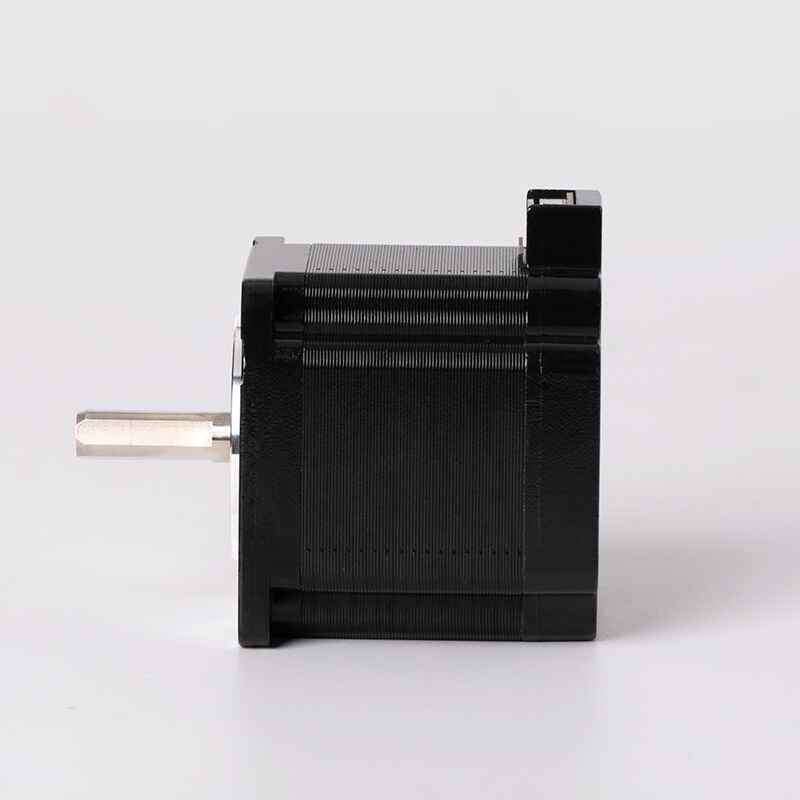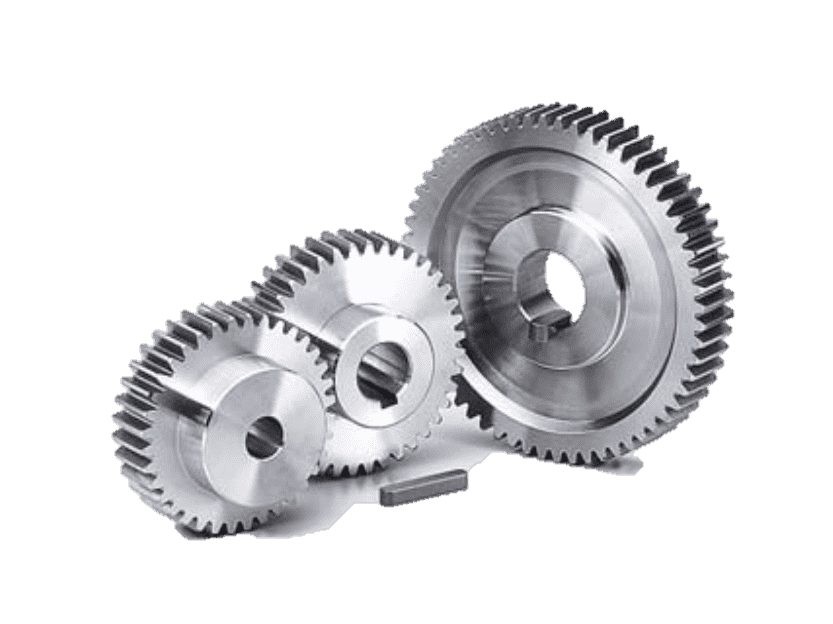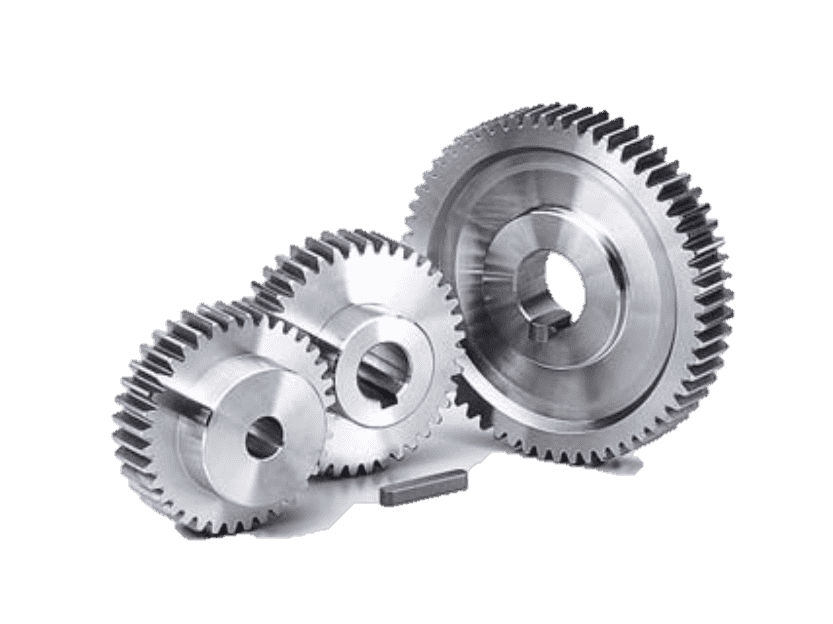How Automation Is Driving Precision Gear Demand in India

How Automation Is Driving Precision Gear Demand in India
The Fourth Industrial Revolution, characterized by the rapid integration of automation, artificial intelligence (AI), and the Internet of Things (IoT), is transforming industries across India. As factories, automotive units, and manufacturing hubs embrace smart technologies, the demand for precision gears—a critical component in automated machinery—has surged. India, with its booming manufacturing sector and ambitious "Make in India" initiative, is now witnessing a paradigm shift toward high-quality, reliable, and durable precision gears to meet the needs of advanced automation systems. This article explores how automation is fueling the demand for precision gears in India, highlights key statistics, and underscores the role of Filium Enterprises, a leading supplier in this space, in supporting the nation’s industrial evolution.
The Rise of Automation in India
India’s industrial landscape is undergoing a seismic transformation. According to the National Association of Software and Service Companies (NASSCOM), adoption of industrial automation in India is growing at a CAGR of 15–20%, driven by sectors such as automotive, aerospace, pharmaceuticals, and renewable energy. The government’s push for Industry 4.0 and initiatives like Smart Cities Mission have further accelerated investments in robotics, CNC machines, and IoT-integrated systems.
A 2023 report by India Brand Equity Foundation (IBEF) reveals that the Indian robotics market is poised to grow from $6.6 billion in 2023 to $10.6 billion by 2027, with manufacturing automation accounting for over 60% of this demand. Similarly, the automotive sector, which contributes 7.1% to India’s GDP, is increasingly relying on automated assembly lines, prompting automakers to source precision components that ensure seamless operations.
Precision Gears: The Backbone of Automation
Precision gears are indispensable in automated systems, responsible for transmitting torque, controlling motion, and maintaining accuracy in machinery. Applications range from robotic arms in automotive plants to servo motors in CNC machines and wind turbine systems. With automation demanding micron-level precision, industries now prioritize gears that offer:
- High durability under stress.
- Low noise and vibration.
- Customization for niche applications.
The global precision gear market, valued at $3.2 billion in 2022, is projected to reach $5.1 billion by 2030, with India emerging as a high-growth region. A 2024 study by MarketsandMarkets estimates that India’s precision gear market will grow at a CAGR of 8.9% between 2024 and 2029, outpacing the global average.
Key Drivers of Precision Gear Demand
1. Automotive Industry Modernization
India is the world’s fourth-largest automotive market, with domestic production reaching 25.8 million vehicles in FY 2023 (SIAM). The shift toward electric vehicles (EVs) and automated manufacturing has intensified the need for precision gears in gearboxes, powertrains, and robotic welding units. For instance, Maruti Suzuki’s Gujarat plant uses over 5,000 robotic units that rely on precision gears for flawless assembly.
2. Growth in Industrial Robotics
India’s industrial robot installations crossed 4,500 units in 2023 (International Federation of Robotics), with sectors like electronics and metals driving adoption. These robots require spur gears, helical gears, and planetary gears to perform repetitive tasks with accuracy.
3. Renewable Energy Expansion
India’s renewable energy capacity has surged to 180 GW as of 2024, targeting 500 GW by 2030. Precision gears are vital in wind turbine pitch systems and solar tracking mechanisms.
4. Aerospace and Defense
With India’s defense production hitting $12.5 billion in 2023, aerospace manufacturers demand high-tolerance gears for radar systems, drones, and aviation equipment.
Challenges and Opportunities
While demand is rising, India’s precision gear market faces challenges such as:
- Skill gaps in gear design and manufacturing.
- Dependence on imports for specialized variants.
- Cost pressures due to raw material fluctuations.
However, these challenges present opportunities for domestic suppliers to innovate. The Production Linked Incentive (PLI) scheme for advanced manufacturing and the Automotive Component Manufacturers Association (ACMA)’s emphasis on localization have boosted domestic production capabilities.
Filium Enterprises: Powering India’s Automation Revolution
Amid this growth, Filium Enterprises has emerged as a trusted leader in precision gear manufacturing. Established in 2005, the company specializes in delivering high-performance gears tailored for automation, robotics, and renewable energy applications.
Key Strengths of Filium Enterprises
- Technological Edge: Filium uses state-of-the-art CNC gear cutting machines and 3D modeling software to produce gears with DIN 5–7 accuracy grades, meeting global standards.
- Diverse Portfolio: Their product range includes helical gears, worm gears, bevel gears, and planetary gearboxes, serving industries from automotive to wind energy.
- R&D Focus: The company invests 6% of its annual revenue in R&D, collaborating with IITs and NITs to develop lightweight, corrosion-resistant gears.
- Sustainability: Filium’s energy-efficient manufacturing processes align with India’s net-zero goals.
Impact on the Market
Filium Enterprises supplies precision gears to major clients like Tata Motors, Siemens India, and Suzlon Energy, contributing to their automation scalability. In FY 2023–24, the company reported a 35% YoY growth, attributed to rising automation demand.
“Our gears are engineered to withstand the rigors of Industry 4.0. With automation becoming a national priority, we’re committed to delivering solutions that enhance productivity,” said Mr. Rajesh Mehta, CEO of Filium Enterprises.
Future Outlook
By 2030, automation is expected to contribute $500 billion to India’s economy (McKinsey). Precision gears will remain central to this growth, with the market likely to exceed ₹12,000 crore ($1.44 billion) domestically. Companies like Filium Enterprises are set to play a pivotal role in India’s journey toward becoming a global manufacturing powerhouse.
Conclusion
Automation is reshaping India’s industrial capabilities, and precision gears are the unsung heroes enabling this transformation. With robust demand from automotive, robotics, and renewable energy sectors, suppliers like Filium Enterprises are not just meeting needs—they’re driving innovation. As India accelerates its automation agenda, the synergy between technology and precision engineering will define the nation’s competitive edge on the global stage.
Word Count: 998








